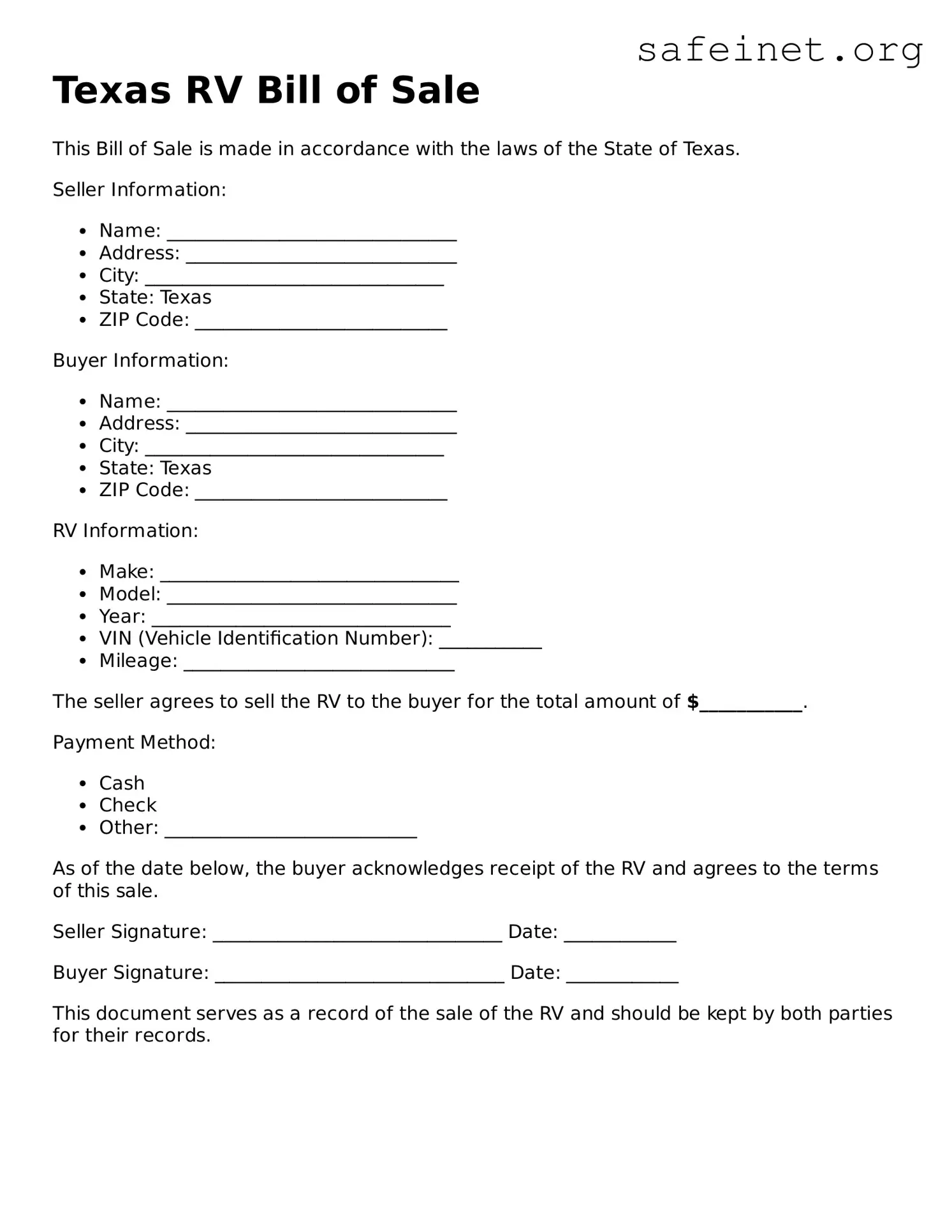What is a Texas RV Bill of Sale?
A Texas RV Bill of Sale is a legal document that records the sale and transfer of ownership of a recreational vehicle (RV) between two parties. It serves as proof of the transaction, outlining the important details such as the buyer and seller’s information, vehicle identification number (VIN), make and model, sale price, and the date of the transaction. This document is essential for the buyer to register the RV in their name and can also protect both parties in case of disputes.
Is it required to have a Bill of Sale when buying or selling an RV in Texas?
While Texas law does not mandate a Bill of Sale for all RV transactions, it is highly recommended. Having a Bill of Sale helps establish ownership and can provide invaluable proof of the agreement should any issues arise after the sale, such as disputes over payment or claims of ownership. Moreover, it may be needed for the buyer to register the RV with the Texas Department of Motor Vehicles.
What information should be included in the Texas RV Bill of Sale?
The Texas RV Bill of Sale should include the following key details: the full legal names and addresses of both the buyer and seller, the RV’s make, model, year, and VIN, the purchase price, the date of the sale, and any additional terms or conditions agreed upon. It is also advisable to include a statement indicating that the seller guarantees clear title to the RV and is authorized to sell it.
Can a Bill of Sale be handwritten?
Yes, a Bill of Sale can be handwritten in Texas, as long as it includes all necessary information and is signed by both parties. However, using a template or a digital format can be more organized and professional, reducing the risk of omitting important details. Regardless of the format, the document must be clear and understandable.
What should I do with the Bill of Sale after the transaction?
After completing the transaction, both the buyer and seller should keep a signed copy of the Bill of Sale for their records. The buyer will use the Bill of Sale to register the RV and obtain a new title from the Texas Department of Motor Vehicles. Retaining a copy can provide protection against future claims or disputes related to the transaction.
Do I need to have a notary public sign the Bill of Sale?
No, it is not a requirement for a Bill of Sale to be notarized in Texas. However, having a notary public witness the signatures can add an extra layer of authenticity and may be beneficial in case of any future disputes. It can also lend additional credibility if the document needs to be presented in a legal context.
